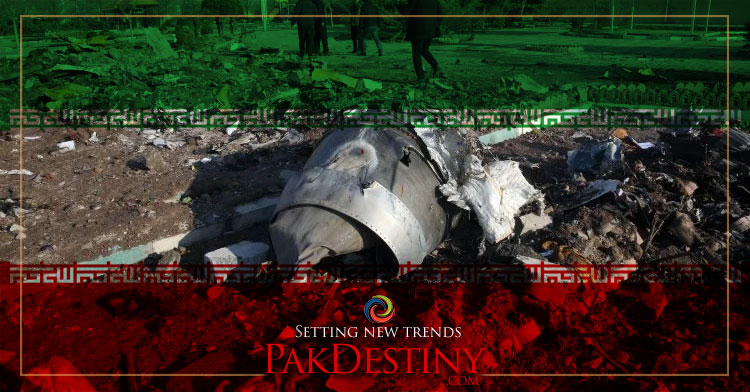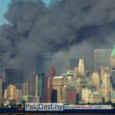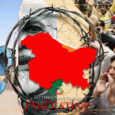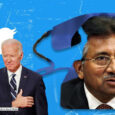
By Sarvat Hossein
Iran admitted to shot down the Ukrainian airplane. Hassan Rouhani, President of Iran, claimed that it happened due to a human error which caused the horrific crash killing all 176 passengers on board. He also indirectly blamed U.S. and said that in an environment of military and terror by the United States aggressive government against the Iranian regime, can cause this type of mistakes.
Latest conflict between two nations initiated when top Iranian Revolutionary Guard commander Qassem Soleimani was assassinated near the Baghdad airport in an air raid by the United States last week. The killing of Soleimani has brought about an outburst of nationalist and anti-Western sentiment within Iran. General Soleimani was a significant figure in Iran’s campaign to re-shape Middle Eastern conflicts and politics in its favour.
US Secretary of State Mike Pompeo, defending the killing of Mr. Soleimani claimed that the General was a great risk to US troops in the region. He alleged that Soleimani was planning ‘a broad, large- scale attack’ against American facilities, including US embassies in the Middle East. However, he did not provide specific information about the concerned plot. He admitted ‘We don’t know exactly which day it would have been executed’.
Iran maintains that it was an act of ‘State terrorism’. The recent tragic events enhanced the risk of an imminent war between United States and Iran. The Trump administration are now under pressure to provide the more information about the so-called ‘imminent threat’ that Iran’s top General posed against the US.
Analysts suggest that if conflict breaks out, it could be the worst conflict in the history of mankind.
Many experts have raised their eyebrows on the issue of the legality of the attack with respect to International Law, as well as the domestic laws of the United States and its bilateral security agreements with Iraq.
Soleimani’s killing has sharply escalated the fear of military conflict between the two nations, as Iranian leaders vowed revenge, while U.S. officials said that they would ‘preemptively’ attack any Iran- backed paramilitary groups in Iraq (or the region) that are perceived to be a threat.
Both the leaders of United States and Iran must be evaluating the gains and losses they have made in their 20-month conflict. Many peaceful political minds are urgently putting pressure on both administrations to de-escalate the conflict because they believe that the objectives on both sides do not appear sunny.
Clearly the result could be a ‘lose-lose’ scenario’ said Dalia Dassa Kaye, who directs a Middle East policy Centre at the RAND corporation, a nonpartisan research group. She claimed that ‘The tally is looking bad for both sides’ as the conflict is far from over yet, and it could take months or even years before it can be resolved.
The remarkable latest admission, that the Iranian military were indeed responsible for the downing of the Ukranian civilian plane is a major and indeed interesting development.
After a series of denials by the Iranian regime, such an admission will bring some comfort to those who were clearly convinced that the denials were the unfortunate posture of a regime in denial about a devastating mistake. Tens of Iranians were on board that flight, adding to the discomfiture of the regime, in having to admit to the mistake.
Suffice to say that in this context, it takes a great deal of courage to admit any mistake, and even more so, a mistake of this magnitude, but this must enhance the credibility of the Iranian regime in the eyes of many.
However, some are already arguing that the admission came about because the regime was ‘trapped by overwhelming evidence’, hence the prompt denial when there was no alternative.
Notably, the Iranian comment on the ‘accident’ also implied that this disaster was consequent upon American adventurism within the region; this gives rise to an obvious question.
Why were civilian aircraft allowed to fly within Iranian airspace, at a time of such heightened tension, especially after an openly admitted attack on a very senior Iranian operative on Iran’s doorstep?
An interesting comment has come from a Canadian air accident investigator who has suggested that in the international arena, the Iranian admission was a noble intervention given that, for example, the Russians have never admitted their mistake when the Malaysian airliner was downed a few years ago.








What next ,indeed ! What about what next after the shooting down , at much closer range , by a US jet fighter , of a Civilian Iran Airliner ? Oh , sorry ,stupid of meti bring it up so out of context !!
صبح سے ایرانی میزائل سے تباہ ہونیوالے طیارے کو لیکر مسلمین (جن کا قبلہ نجدہے) اور ملحدین ( جنکا قبلہ نیویارک و لندن ہے) پوسٹیں کر کر کے ہلکان ہوئے جا رہے ہیں جس کی بنیادی وجہ دماغ کا ٹخنوں کے نیچے لگا ہونا ہے کیونکہ
ایران میں ایمرجنسی نافذ تھی ایک سپر پاور دشمن کے ساتھ مقابلہ تھا ۔۔۔ اس ایمرجنسی کی حالت میں اگر مسافر طیارہ تباہ ہوا ہے (جو کہ بلاتردد کہنا شاہیے کہ افسوسناک ہے) تو ایرانیوں میں اتنی جرآت ہے کہ حکومتی سطح پر اعتراف کر کے تلافی کا وعدہ کریں۔۔۔۔۔۔
اور آپ کے ہاں صبح صبح رب کو راضی کرنیوالے مسجد میں نماز پڑھنے گئے اور چیتھڑوں میں بٹ کر مسجد کی دیواروں پر پینٹ ہوگئے۔۔۔۔ جس کا نہ تو حکومتی سطح پر کوئی ملال ہو گا اور نہ عوامی سطح پر۔۔۔۔۔ کیونکہ ہم اس درندگی کو سہتے سہتے اور اپنی جہالت کی وجہ سے عادی ہوگئے ہیں۔۔۔۔۔ ہمارے لئے کوئٹہ کے چودہ لوگ کم اہم ہیں جبکہ ایران کے ساتھ اپنے تعصب کا اظہار بہت اہم ہے۔۔۔۔
اگر ایران میں طیارہ تباہ ہونا حکومتی و ریاستی نااہلی ہے تو کیا کوئٹہ کے واقعے پر انتظامیہ اور ریاستی سیکیورٹی اداروں کو نشان امتیاز دینا چاہیے۔۔۔۔۔۔۔؟؟؟؟؟